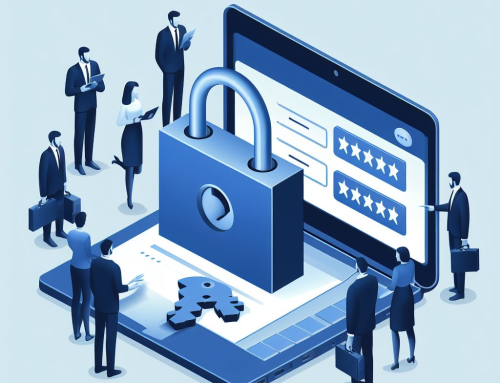Have you been hearing a lot about email authentication lately? Acronyms like DMARC and DKIM have been flying about but unless you are a computer geek, you probably have no idea what it is or why it affects you. With phishing being a major security threat and the main cause of data breaches, it’s time to take email authentication seriously and understand what those terms mean.
Email Authentication: The Basics
Let’s dive into the world of email authentication and help you understand why it’s more important than ever for your business. At its core email authentication boils down to being able to prove that the sender of an email is who they say they are. If you can verify that an email comes from someone then that cuts out a lot of (but not all) the risk associated with that email. Let’s look at why.
The Email Spoofing Problem
Imagine receiving an email from your bank requesting urgent action. You click the link, enter your details, and…. your information is compromised. This is called email spoofing, where scammers disguise their email addresses to appear as legitimate individuals or organisations.
The Solution: Email Authentication
Email authentication is a technology that verifies that your email is legitimate, including verifying the server sending the email and reporting back unauthorised uses of a company’s domain (i.e. it flags that someone is pretending to be you!).
Key Protocols: SPF, DKIM, and DMARC
Email authentication uses three key protocols: SPF, DKIM, and DMARC.
SPF records the IP addresses authorised to send email for a domain
DKIM allows domain owners to digitally “sign” emails
DMARC gives instructions to a receiving email server on what to do with the results of an SPF and DKIM check.
Why it Matter
Both Google and Yahoo have implemented new DMARC policies recently that make email authentication essential for businesses sending emails through Gmail and Yahoo Mail. Many businesses suddenly found that their emails weren’t being delivered to their clients and that is because these key protocols hadn’t been set up. If you manage your own email without using a Managed Service provider then there is a good chance that you won’t know what these protocols are, or that they are needed, let alone how to set them up.
Benefits of Implementing DMARC
Implementing DMARC isn’t just about complying with new policies, it offers a range of benefits for your business, including protecting your brand reputation, improving email deliverability, and providing valuable insights.
Take Action
It’s time to take action and put DMARC in place for your business email.
We’re here to help. Contact us today to schedule a chat.







